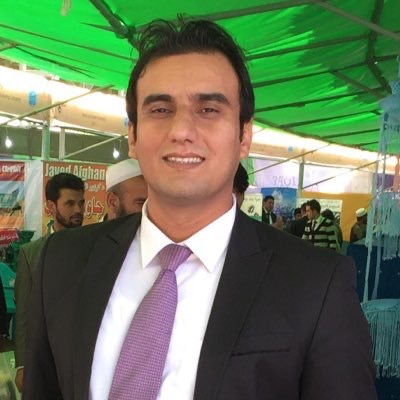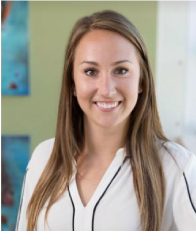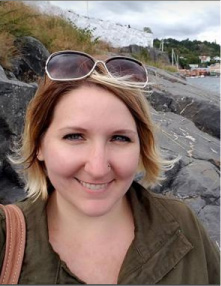Alumni Profiles
 "I have been working in the field program evaluation since 2009, particularly in social program evaluation for USAID funded humanitarian and international development programs. My passion for driving impactful change and my commitment to ensuring the effectiveness of development initiatives led me to pursue further education in program evaluation. I recognized the need for a comprehensive understanding of program evaluation methodologies, data analysis techniques, and result-oriented approaches to accurately assess the impact of various projects and facilitate informed decision-making.
"I have been working in the field program evaluation since 2009, particularly in social program evaluation for USAID funded humanitarian and international development programs. My passion for driving impactful change and my commitment to ensuring the effectiveness of development initiatives led me to pursue further education in program evaluation. I recognized the need for a comprehensive understanding of program evaluation methodologies, data analysis techniques, and result-oriented approaches to accurately assess the impact of various projects and facilitate informed decision-making.
My frequent travel commitments due to my job made it challenging to enroll in an in-person program. Opting for MSU's Program Evaluation online degree program enabled me to balance my academic pursuits with my professional job requirements. The program's flexible online structure provided me with the opportunity to engage in advanced learning without compromising my travel schedule. Additionally, MSU has renowned faculty who have extensive program evaluation experience in the field, it has comprehensive curriculum relevant to my job, and its emphasis on practical application and real-world experiences. The program's focus on global perspectives and its alignment with my career aspirations in international development made it the ideal choice for advancing my skills and expertise in the field of program evaluation at MSU.
The MSU Program Evaluation has significantly enhanced my ability to conduct comprehensive and robust evaluations, enabling me to apply advanced analytical techniques and innovative methodologies to my current projects. The program has equipped me with the necessary skills to develop evidence-based strategies and implement impactful interventions that create a tangible difference in the lives of individuals and communities."
Learn more about Fahim Safi here.
 "I began at Michigan State University as an undergraduate, where I found my place within the fields of psychology and criminal justice.
"I began at Michigan State University as an undergraduate, where I found my place within the fields of psychology and criminal justice.
My aspiration to propel community change motivated me to become involved in the Adolescent Diversion Program and co-direct the Strengthening Teen Relationships and Inspiring Valuable Experiences program, both mentorship programs working with youth involved in the juvenile justice system.
During this time, I witnessed the systemic oppression faced by individuals and became frustrated with the barriers in place that limited the effectiveness of the systems designed to serve them. Through research and the aid of my mentor, I discovered program evaluation. The ability to have community-level impact, be both creative and analytical, and to work individually as well as within a team are some examples of what attracted me to the field of evaluation. MSU is one of the few universities in the country currently offering a degree specifically in evaluation.
I will not understate the challenges of obtaining this degree: it was intense. However, the supportive professors and variety of classes significantly prepared me for my current position. Beyond learning the technical aspects of evaluation, I also learned about the breadth of opportunities available to professional program evaluators.
My professors were representative of this, as they worked in a variety of fields, from academia to owning their own evaluation firms. The classes were flexible, allowing me to focus on my specific area of interest. While I was interested in community-based work related to the justice system, others were interested in areas such as health care and housing equity. The classes accounted for these differences, and allowed me to learn both from and with my classmates.
I currently work as a research coordinator at the Johnson Center for Philanthropy’s Community Research Institute. In this position I design, implement, and manage community-based research projects and provide evaluation technical assistance to local organizations. I feel fortunate to both love the work that I do as well as to use my education, degree, and experiences every day."
- Alexandra Watson, M.A. Program Evaluation
 "I graduated in 2012 with a bachelor of arts in arts and humanities from MSU’s Residential College in the Arts and Humanities with an additional major in psychology. My degree plan allowed me to pursue a wide range of interests in art, culture and social justice. I was also very involved in Robin Miller’s Safer Sex Research Lab.
"I graduated in 2012 with a bachelor of arts in arts and humanities from MSU’s Residential College in the Arts and Humanities with an additional major in psychology. My degree plan allowed me to pursue a wide range of interests in art, culture and social justice. I was also very involved in Robin Miller’s Safer Sex Research Lab.
From 2012-2013 I taught second grade in Baltimore, Maryland. During that year, I witnessed how malnutrition and insufficient mental health services impacted my students’ ability to thrive. I then joined AmeriCorps and spent a year teaching healthy cooking classes with Gleaners Community Food Bank’s outstanding programs department. I decided I needed to use my career to improve and support the resources people need to be well.
In 2015, I started my master’s degree in program evaluation. I was drawn to the leadership of Robin Miller and Adrienne Adams, the efficient timeline to degree completion and the practicum requirement for learning in the field.This seemed like the perfect fit with my goals.
I was a little apprehensive about the online format but with videoconferencing, a project based curriculum and dedicated faculty, I got used to it quickly. I was really impressed with the balance of foundational coursework and practical skills. The six-month practicum was invaluable. Evaluation can be so different across settings, learning how to be flexible and responsive to clients can really only be learned in practice.
I’m currently an evaluation specialist with the Center for Healthy Communities at MPHI in Okemos, Michigan. In this role, I support public health initiatives in tribal communities. The programs my department supports are all created and implemented by members of the community. I love working with our clients. I am inspired by their innovation and passion every day."
- Chelsea Schmidt, M.A. Program Evaluation

